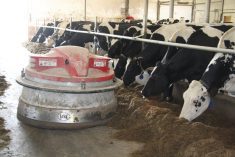LINDELL BEACH, B.C. – British Columbia has confirmed its first locally acquired cases of West Nile virus in both horses and humans.
Three horses have been infected, two in the Osoyoos area and one in Aldergrove. None of the horses had travelled outside the province. In 2006, a horse that had travelled to Colorado was infected with West Nile virus before returning to B.C.
These incidents followed the confirmation of the first human cases, further confirming the presence of the West Nile virus.
Read Also

Soybean market still figuring out implications of China-U.S. pact
Soybean futures had a muted reaction to the U.S. trade deal with China as the market tries to figure out the nuances of the deal.
“This is not a surprising development,” said Dr. Paul Kitching, chief veterinarian and branch director at the Animal Health Centre.
“British Columbia has long anticipated the arrival of West Nile virus and now it’s in multiple regions of the province. What is important is preventing infection as best as possible, for both humans and animals. Of all large land mammals, horses are particularly susceptible.”
Vaccine available
There are West Nile virus vaccines for horses, and horse owners should talk to their vets about getting their animals immunized, he said.
Dr. John Twidale of the B.C. Veterinary Medical Association said horses’ symptoms include a dull sleepy demeanour and muscle tremours in the face, chest and hind legs that can progress to staggering, falling and being totally unable to rise.
Once a horse goes down, it may not be able to get up and it would have to be euthanized. Even horses that remain standing may have nerve damage that will affect their gait.
An unstable horse can be a danger to its handler and extra care is needed when working with it. Once neurological symptoms appear, there is no specific treatment to cure the disease.
The majority of horses recover with no adverse effects.
Horses that have been infected are not a direct risk to other horses in the area.
“This is the first confirmed West Nile activity in the Fraser Health region,” said Dr. Elizabeth Brodkin, medical health officer for Fraser Health.
“We are reminding people in the Fraser Health region to continue to take precautions to prevent mosquito bites as the best way to protect themselves and their families from West Nile virus.”














